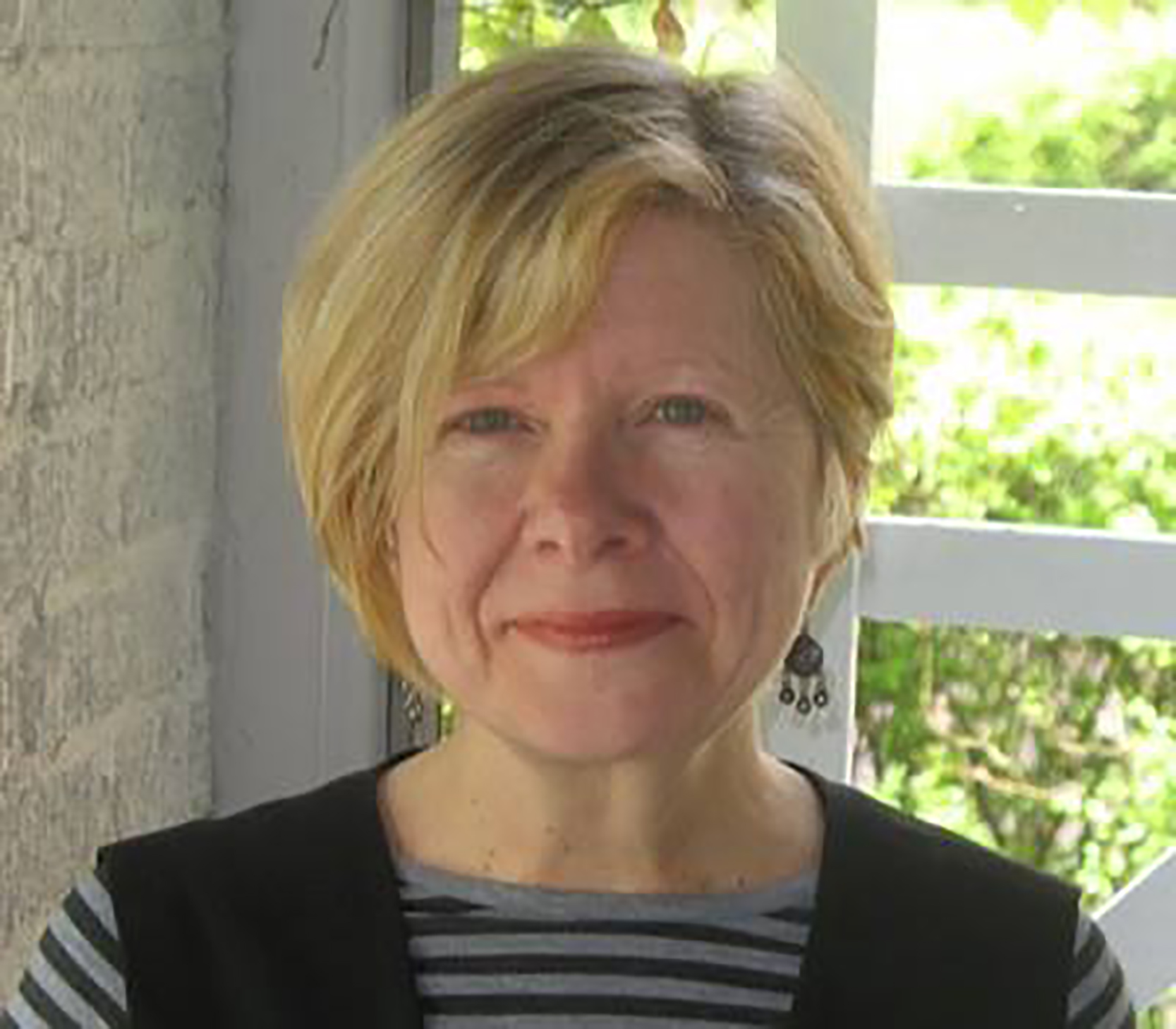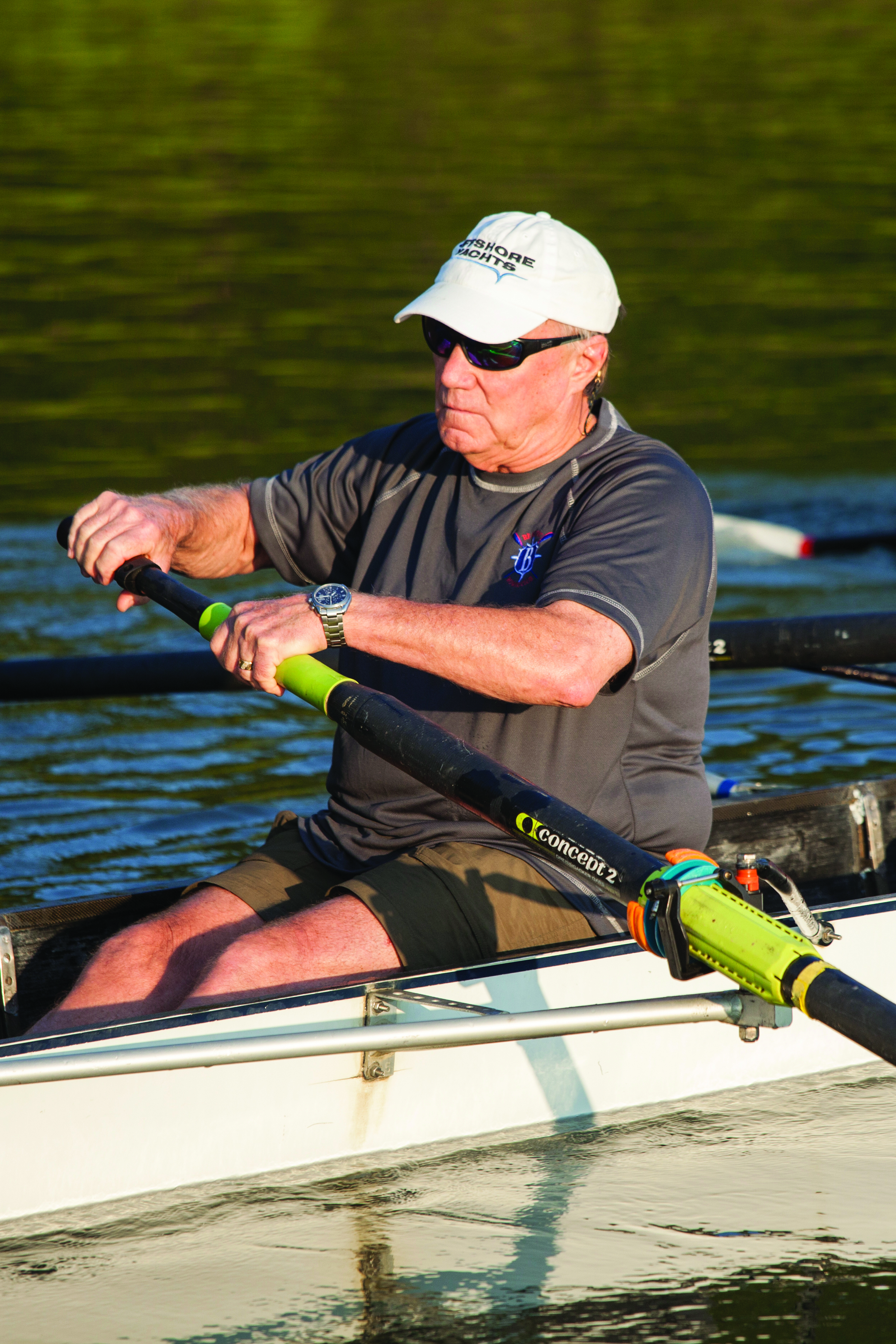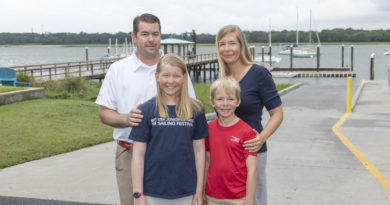Beaufort Native Valerie Sayers : Proves You Can Go Home Again
story by Mindy Lucas
Beaufort native, Valerie Sayers, is the author of six novels including Who Do You Love and Brain Fever, which were named New York Times “Notable Books of the Year.” The film Due East was based on her novels Due East and How I Got Him Back. Sayers recently won her second Pushcart Prize for fiction and will be inducted into the South Carolina Academy of Authors, the Palmetto State’s literary hall of fame, on April 28, part of a weekend-long induction celebration to be held in Beaufort. She was a Beaufort High School student of Pat Conroy’s and serves on the board of directors of the Pat Conroy Literary Center. She now teaches English and fiction writing at the University of Notre Dame.
Mindy Lucas: Let’s talk a little bit about your background. Were you born and raised here in Beaufort?
Valerie Sayers: Yep, born and raised. I was born in 1952. I was the fourth of seven kids. So I’m right in the middle. I went to Battery Creek Elementary, Beaufort Junior High and Beaufort High School.
I left when I was 17 after my senior of high school. I was hell bent for New York City. I thought I was going to be an actor. I had been acting in the Beaufort Little Theater because that was my fantasy. My father had gone to Fordham University in New York [Where Valerie also went] and as it happened, they were starting a brand new experimental college at Lincoln Center with an emphasis in the arts.
ML: What were your parents like or what did they do?
VS: Well, my parents were Yankees.
ML: (laughing) Is that an occupation?
VS: (laughing) So many people in Beaufort are. My dad was a psychologist – a civilian psychologist at Parris Island and my mom was raising seven kids. So they were very supportive of my going to New York.
So I did. I took off and it took about six weeks probably for me to decide that I really didn’t want to be an actor, that it was a very hard and miserable and competitive life. So I spent a good portion of my college days figuring out the next step. But you know I had written all my life. I threw myself at literature courses in college even though I never declared an English major at the time.
ML: Let’s talk about the town of Due East in your work, not to be confused with Due West, South Carolina. I believe I read where this is a thinly veiled Beaufort?
VS: Yeah, it’s totally Beaufort. You know I’m not sure exactly why I didn’t call it Beaufort. I actually stole the name Due East from a dear friend, a writer friend and classmate. And I just took it.
ML: You’ve written about the town in your books Who Do You Love and Due East and in those books you also explore themes of relationships, loneliness, your characters’ inner desires or their plight. Can you describe the bigger themes of your work?
VS: I often have thought of my work, particularly certain novels and certain stories, as veering much more in the direction of very particular moments in history. So my novel Who Do You Love takes place in the 24 hours before John F. Kennedy is assassinated and is very much about the changing political terrain of the small town South.
Or, in my novel Brain Fever, the main character, who is having a crack up, is actually consumed with the situation of the civil war in Bosnia and what’s happening to the Bosnian people even though half the novel takes place in this little Southern town. But that was inspired by people I knew in Beaufort who were anti-war activists during the Vietnam War for example. And that was a very lonely thing to be in Beaufort because, of course, it was such a military town.
ML: You’ve been compared to Carson McCullers and Flannery O’Connor for your characters and voice, possibly since the characters that people your world are a little askew or off course. What do you think of that comparison?
VS: You said it very well. I actually teach, as often as I can, a course in Southern Literature. I teach McCullers and O’Connor, both of whom I hold in very high esteem.
When I was a young writer, it was Faulkner really that I fell love in love with. And the idea of using the place of Due East was absolutely a Faulknerian move. That was my own little homage to William Faulkner’s Yoknapatawpha.
But certainly McCullers, O’Connor, and Walker Percy is each a great example of a Southern writer who had a really profound impact on my thinking about what it is a novel can do and should do. Those are all really important people to me and they, like all novelists I guess, are always interested in that central question of the individual in a culture and how often the individual feels estranged from a culture or estranged from even bigger questions—questions about existence and the, capital M, Meaning of, capital L, Life.
ML: Let’s circle back to your connection to this place—to Beaufort—and when you went to Beaufort High School, and, if you’d like, please tell your Conroy story.
VS: Pat was just a god. It’s just so funny to think how young he was then. Because we were, you know, 17 years old, 18 years old, 16 years old. He must have been 22 or 23 when he taught us.
We just thought he was so sophisticated and witty and erudite. I thought he knew everything. Maybe he did. (laughing) He was very good at projecting that sense.
The memory that always strikes me most deeply and really moved me is when his parents came to visit our psychology class. I thought they were beautiful. They looked like the perfect parents for Pat Conroy. They kind of swept into the classroom, and they stayed for about 15 minutes and then swept back out. And Pat just gave this very together lecture. He was a big lecturer, which is quite a skill I’ve come to find out. But he could really talk at length, extemporaneously.
He was very handsome and he projected all this self-confidence. So what was really moving about this moment was when, after they left and he saw them out, he came back and he was just white. And we could see that he was sweating and he sort of just broke the wall of authority that he held over us by saying, “That was the hardest thing I’ve ever done in my life.” It was a very humanizing moment, and I already adored him but I really, really liked him after that.
ML: As Pat was in 1988, you will be inducted into the South Carolina Academy of Authors this April in a ceremony here in Beaufort. What has the thought of that been like for you?
VS: Well it’s such a lovely honor. It’s a real tickle that it will be in Beaufort. My mother will be 100 when that event happens. So I’m just holding my breath. She’s still getting around, so I hope she’ll be there because really that honor would be the ultimate for her.




